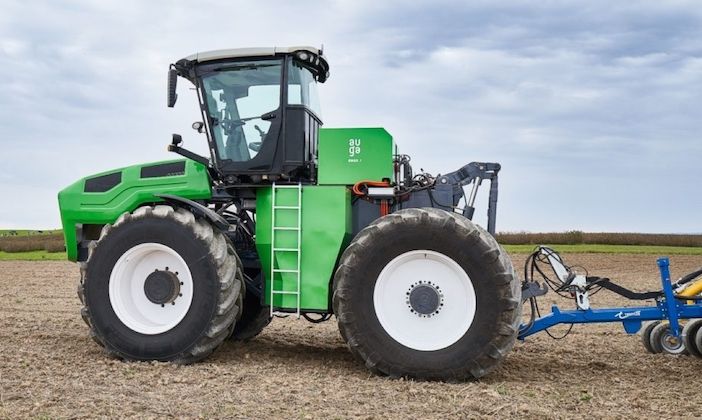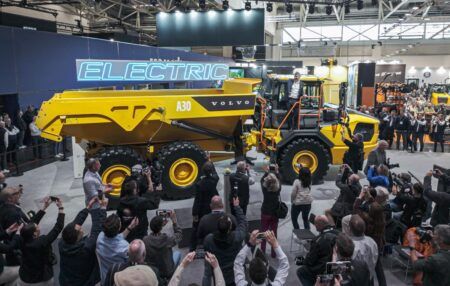A European organic food producer has developed what it claims to be the world’s first hybrid biomethane and electric tractor.
The Auga M1 tractor is 6m long, 4m high and runs on 900/60R 42 tyres. The Auga group says it can do the work of an equivalent 400hp diesel power tractor for 12 hours on one fuel cartridge.
Based in Lithuania, the Auga group is Europe’s largest vertically integrated organic food producer running 39,000ha of organic cereals, root crops and vegetables, plus a large dairy farm with 3,400 cows.
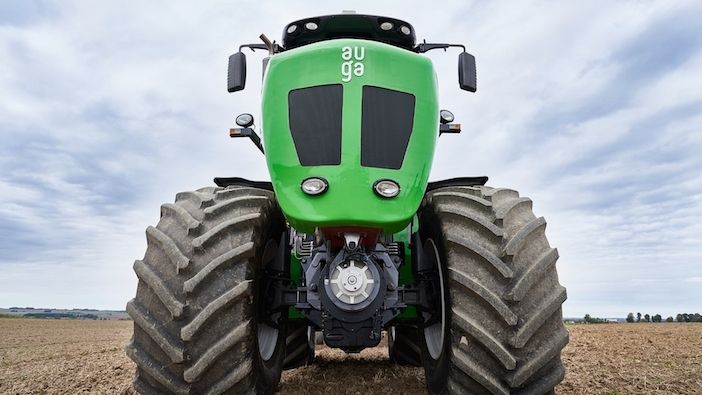
Meeting the challenges
Until now, sustainable fuel tractors delivered worldwide have not been suitable for professional farm work. But Auga group CEO Kestutis Juscius explains that the hybrid Auga M1 tractor is unique because it solves two main obstacles that have so far prevented the world’s largest corporations from offering such equipment for professional use.
“Our team of engineers has found solutions to solve the problem of refuelling and ensure uninterrupted operation of the tractor throughout the working day,”
“Currently, biomethane-powered tractors are able to operate for only two to four hours because the gas cylinders do not physically fit into the tractor structure. However, farmers need agricultural machinery that can work for 12 hours or more. Auga group understands this perfectly and has created a solution.”
The company’s patented design allows the tractor to accommodate larger biomethane gas cylinders. The Auga M1 tractor uses a hybrid biomethane-electric fuel system. When the tractor is running, an internal combustion engine powered by biomethane generates energy and transmits it directly to the electric motors that spin the wheels. The company’s patented design allows the tractor to accommodate larger biomethane gas cylinders.
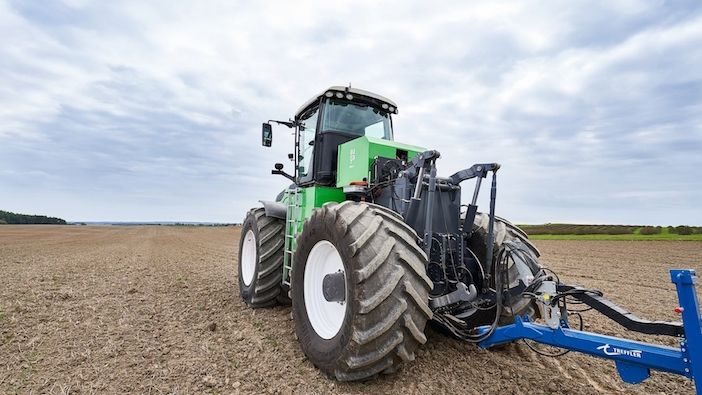
When operating under normal conditions that do not require high power, the tractor stores the generated energy reserve in the batteries. Such a system does not waste energy in low load conditions, uses a relatively small but efficient motor and is able to extract tremendous power when needed. These solutions allow the tractor to work for up to 12 hours.
The second obstacle to the spread of biomethane-powered tractors is the underdeveloped biomethane refuelling station infrastructure. The Auga group has solved this problem by offering quick and convenient gas cartridge replacement.
Kestutis adds that the choice of biomethane as an alternative fuel was not accidental as it is one of the greenest types of biofuel. Methane, collected from livestock waste and converted to biomethane, offsets more emissions per unit of energy in its production and use cycle than it emits.
Looking to the future
The company also says it has more solutions, which will ensure the sustainability of the entire food chain, coming in the future. The company’s specialists are currently developing other sustainable solutions for technologies that will eliminate carbon emissions from the soil and digestive process of cattle.
“Our invention makes it possible to create a wide range of tractor applications and make it accessible to all farmers who want to work sustainably,” says Juscius. “We are not developing technology just to solve our own emissions and deliver on the promise of becoming a CO2-neutral company by 2030
“Our goal is bigger. We will strive to make this tractor and other technologies that are still being developed available to farmers all over the world and help solve the global problem of pollution in the agricultural sector.
“Our innovations will bring together a global community of responsible consumers, smart farmers and bold investors. It will ensure real change by creating an environmentally friendly food supply chain, and will allow to implement the vision of Auga group which is to become synonymous with sustainable food and lifestyle.”
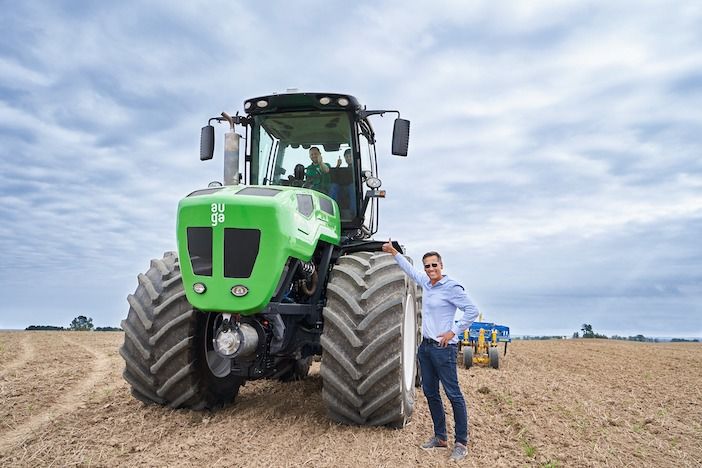
Research claims that agricultural activity is responsible for almost a quarter of all greenhouse gas pollution in the world. A large part of the emissions is due to the use of fossil fuels in agricultural machinery.
“We are ready to provide consumers around the world with food at no cost to nature,” says Juscius. “By eating such food, people themselves will make a positive impact on climate change daily. And we are sure that more and more people want to live like this.
“Three years ago, when we first calculated our emissions, we saw that as much as 30% of them come from the use of fossil fuels on farms. There were simply no solutions to change it.
“That is why we have taken the lead in developing technologies that will allow us to create a new standard for sustainable agriculture and drastically reduce pollution throughout the food value chain. The first result of this work is a biomethane and electric tractor.”


